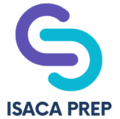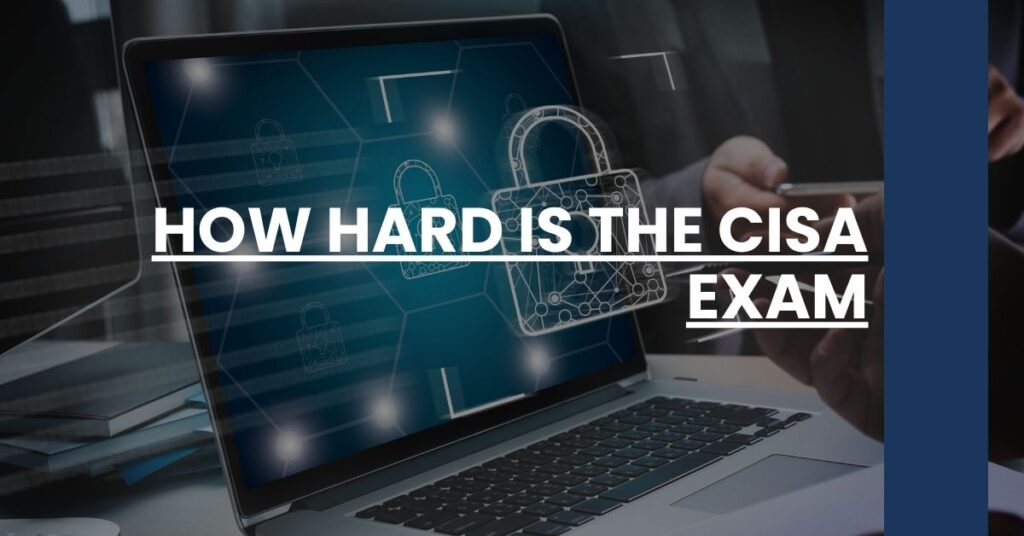How hard is the CISA exam? Understanding its difficulty helps you prepare effectively for this critical IT audit certification.
- Exam Format and Length: The CISA demands intense focus with a 150 multiple-choice question format, completed over four hours.
- Technical Content: Mastering the diverse technical topics is key to conquering the exam’s challenges.
- Breadth of Knowledge Required: Extensive knowledge across IT audit, governance, and security domains influences exam difficulty.
How hard is the CISA exam can be, hinges on your preparation strategy.
The CISA Exam Overview
Embarking on the journey to become a Certified Information Systems Auditor (CISA) involves conquering the formidable CISA exam. While the challenge of this test can seem daunting, understanding its structure is the first step in demystifying its difficulty.
What Does the CISA Exam Entail?
- Format: The exam is computer-based, comprising 150 multiple-choice questions. Each question tests your knowledge and skills about information systems auditing, control, and security.
- Duration: Candidates have a total of four hours to navigate through these questions. Time management is therefore a crucial element of your exam strategy.
- Scoring System: The CISA exam uses a scaled scoring model, with scores ranging from 200 to 800. A minimum score of 450 is required to pass, yet the exact thresholds for what constitutes a passing score are kept under wraps by ISACA.
- Content Areas: The exam covers five primary domains:
Understanding these basics provides a framework around which to build your study plan, regardless of how hard the CISA exam is perceived.
Evaluating the Exam’s Difficulty
When you type “how hard is the CISA exam” into a search engine, you’re bound to encounter a variety of answers. This varying degree of difficulty lies in several key factors:
Question Complexity
Unlike exams that check rote memorization, the CISA exam requires you to apply concepts in practical scenarios. It’s not just about what you know; it’s about how you use that knowledge.
Technical Content
The exam delves deep into technical IT processes and auditing standards, which can be overwhelming if your background isn’t in technology or auditing.
Breadth of Knowledge
You need a comprehensive understanding of various IT systems and practices. The CISA exam isn’t looking for niche experts; it’s filtering for professionals with a holistic understanding of IT system auditing.
By recognizing these imposing elements, you can start tailoring your study plan to tackle the most challenging aspects.
Study Time Commitment
“How long should I prepare for the CISA exam?” — it’s a common query with no one-size-fits-all answer. Your study time will be influenced by several personal factors, including your baseline knowledge, learning pace, and the amount of time you can dedicate each day to studying.
- Study Duration: Some individuals may only need weeks, while others may require several months of diligent study. It’s about quality and consistency over quantity.
- Daily Study: Recommendations suggest that an average of 2-to-3 hours a day for approximately 2 months may be sufficient. This will vary, with some candidates successfully compressing their study time into fewer weeks with intense dedication.
- Study Techniques: Whether you prefer early morning study sessions or dedicating weekends to deep dives into auditing processes, finding the study rhythm that works for you is key.
Acknowledging these factors can help you estimate the amount of time you’ll need to adequately prepare for the CISA exam and align your expectations accordingly.
Comparison With Other IT Certifications
When contemplating how hard is the CISA exam, it’s beneficial to put it into perspective by comparing it with other IT certifications. This can help you gauge the level of difficulty you’re facing.
Relative Standing Among IT Certifications
- CISSP: The Certified Information Systems Security Professional (CISSP) exam is often regarded as more challenging than the CISA due to its depth on technical topics. CISSP focuses more on aspects of IT security, whereas CISA has a stronger emphasis on auditing and controls.
- CompTIA Security+: A foundational certification like CompTIA Security+ is generally considered less difficult than the CISA. It serves as an entry point for IT security and covers basic concepts.
- CISM: The Certified Information Security Manager (CISM) shares some content with CISA but leans more towards management and strategy.
Each certification has its own scope and focus, with CISA standing out for its unique blend of IT audit, control, and security expertise. Understanding this context can help you navigate your study priorities accordingly.
Preparation Strategies for Success
Crafting an action plan to conquer the CISA exam requires incorporating strategies that have proven successful for past candidates.
Developing a Robust Study Plan
- Diagnose First: Assess your current knowledge and experience in each domain area. Identify gaps before you dive into the content blindly.
- Tailored Study Resources: Choose study materials that fit your learning style, whether they be visual aids, practice questions, or systematic review.
- Consistent Schedule: Set a regular study routine, balancing study with rest to avoid burnout.
A solid study plan is your roadmap through the challenging terrain of the CISA exam. It should be as unique as your journey.
Resources and Study Materials
The right resources can make all the difference in comprehending how hard the CISA exam is and how to tackle it.
Best-in-Class Study Aids
- ISACA Materials: Utilize official resources such as the CISA Review Manual and Question, Answer, and Explanation (QAE) database for comprehensive coverage of exam content.
- Training Programs: Consider both self-paced and instructor-led courses from certified training providers for structured learning based on the ISACA framework.
Investing in quality materials correlates directly to your grasp of the material and, ultimately, your performance on exam day.
The Role of Practice Exams
Practice exams are an integral part of your preparation, giving you a real-time gauge of your readiness.
Advantages of Simulated Testing
- Real Exam Feel: Simulate the pressure and timing of the actual exam to develop your test-taking stamina.
- Knowledge Check: Practice exams reveal which domains you’ve mastered and where further review is necessary.
Consistent use of practice exams can sharpen your test-taking skills, making the CISA exam seem less formidable.
Conclusion: Perspective on the CISA Exam Challenge
The challenge of the CISA exam is significant but not insurmountable. With a comprehensive understanding of what lies ahead, you can approach the exam with the pragmatism and determination needed to succeed. Remember that the rigor of the CISA reflects its value and prestige in the IT audit field. With strategic preparation and the right resources, you are equipping yourself to conquer the exam and enhance your professional credentials.

